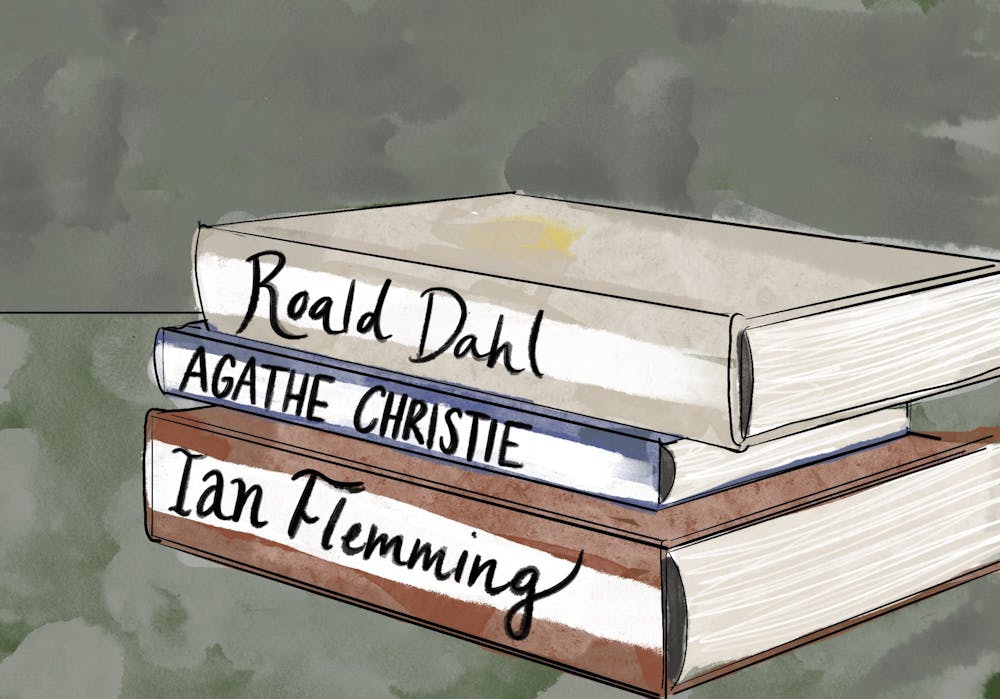In today’s world, the act of teaching, learning and even reading are all highly political. What is taught, how it is taught, what is read, how it is read, these are all questions that we are reckoning with on a daily basis. And unfortunately, the current trajectories of our answers represent a conscious erasure of uncomfortable history.
In 2022, Florida governor Ron DeSantis signed the Individual Freedom Act, more commonly known as the Stop W.O.K.E Act. This law prohibits any education or professional training that leads individuals to confront discrimination on the basis of race, color, sex, or national origin — essentially criminalizing any classroom instruction that discusses identity as a basis for discrimination. Since its passage, this law has prompted various decisions that constitute censorship — prime examples include rejecting 42 widely accepted math textbooks because of “social and emotional learning content” and banning Advanced Placement African American Studies from being taught in the state. This law promotes an inaccurate representation of a complicated history and a similarly complicated present by erasing struggles, contributions and experiences that deviate from traditional nationalist narratives of life.
Recent developments have expanded the erasure of history from an ill-intentioned conservative policy phenomenon to a well-intentioned social literary trend that is nonetheless highly problematic. Specifically, estates — which oversee posthumous decisions regarding authors’ work — and publishers of many famous authors are revising offensive language in already published works in order to reflect modern language norms. Among the affected authors are Agatha Christie, Roald Dahl and Ian Flemming. This specific erasure of history is especially concerning because it is disguised as a well-meaning attempt to remove marginalizing language from classic books. However, it is essential to see this for what it is — an unwillingness to discuss the complicated and problematic historical context in which these authors lived and their own marginalizing prejudices. Instead of historically contextualizing these offensive phrases, the phrases, along with an opportunity to learn nuanced history, are simply erased.
In Agatha Christie's books, stereotypical references to ethnicity and racialized descriptors have been removed. In Roald Dahl, much of the ableist and body-shaming language has been replaced with body-neutral language. And in Ian Fleming’s books, racial slurs specifically towards Black people have been censored. With many cases, the estates and publishers assert that their revisions align with what the authors themselves would have wanted — that is to say continued relevance for their stories. But we must question whether these revisions actually do violence to authentic historical narratives.
Walter Benjamin once asserted that “there is no document of civilization which is not at the same time a document of barbarism.” Novels, as historical documents of past human civilizations, are documents of barbarism. To revise their language is to damage a document of history and to excuse the original barbarity by pretending that it never happened. Acknowledgement of complexity in these texts does not necessarily negate their value — it simply complicates their value and contextualizes their perspectives. Revisions promote superficial inclusivity and permit continued and uncomplicated adoration of well-liked authors. However, this is at the expense of a genuine historical understanding which critiques offensive undertones and overtones without erasing them.
Moreover, the removal of specific and overtly offensive phrases cannot compensate for the overall offensive dispositions of the author, which inevitably appear in the plot at a subtler level. For example, the removal of a racial slur does not mean that the character’s behaviors will not conform to racialized stereotypes. But in removing the blatantly offensive, publishers have absolved the public and themselves of interrogating racism, ableism, ethnic stereotyping and sexism in literature. We are no longer obliged to engage with why a racial slur is condemnable today if it was once acceptable or why popular authors display problematic tendencies.
These conversations regarding past marginalizing and its contemporary implications are exactly what legislation such as the Stop WOKE Act attempts to prohibit. Learning critical race theory disrupts simplified narratives of white supremacy. Similarly, learning that authors we idealize were themselves employing marginalizing language disrupts their status as literary models. These are disruptions with which we must engage.
Instead of changing literary language to reflect present norms, we should discuss its historical context and the flaws of the authors. Agatha Christie wrote in the early and mid-20th century. It is unrealistic and historically revisionist to suggest that she did not subscribe to the racism and ethnic stereotyping in which she was steeped. This was an unavoidable barbarism of her time for which she and her society should be held accountable.
It is useful and vital to discuss the social milieu of past centuries — their flaws, their norms and their modern day implications. Failure to engage in these conversations, both inside classrooms and in more public forums like social media, will whitewash a complicated past and permit historical misunderstandings.
Naima Sawaya is a Viewpoint Columnist who writes about Academics for The Cavalier Daily. She can be reached at opinion@cavalierdaily.com.
The opinions expressed in this column are not necessarily those of The Cavalier Daily. Columns represent the views of the authors alone.






